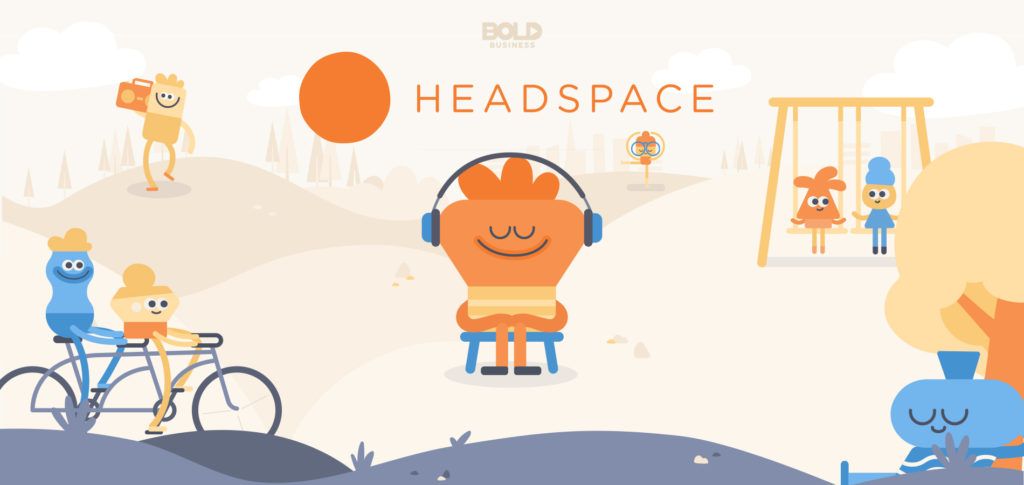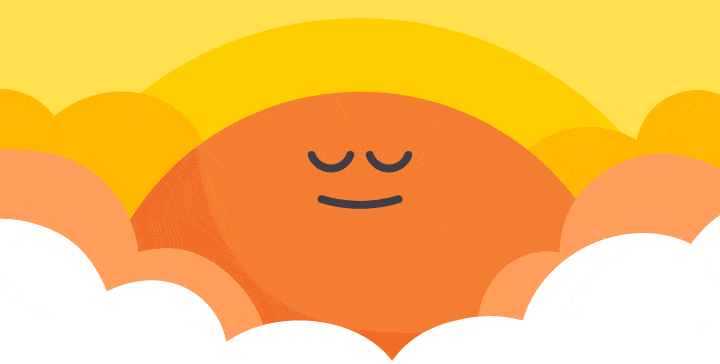Headspace: Mindfulness in an Uncertain New World

In a time of great uncertainty, people are looking to mindfulness and meditation apps for a respite from the crisis, with Headspace at the forefront.
In the midst of a pandemic that has propelled the world into a combined economic and public health crisis at a scale unlike any other in modern history, meditation apps have seen a surge in usage as people look to cope with their anxiety and stress. People are grappling with new challenges that seem to have exploded over the span of just weeks: a constant news cycle with updates on new infections, border closures, and regulation; the economic impact and its uncertain timeline; stay-at-home orders and mandatory social isolation. For people living with existing mental health conditions such as clinical depression and anxiety, claustrophobia, and more, this situation could exacerbate symptoms. [1] Headspace is at the forefront of meditation apps stepping up to address this need.
Before the COVID-19 outbreak, mindfulness and mental wellness had become increasingly discussed, as people grew more aware and vocal about of the importance of addressing mental health issues. [2] Meditation has been found to reduce stress, anxiety, and depression, as well as improve sleep. [3] This value proposition is more relevant than ever during the pandemic.
During the week of March 29th, mindfulness apps reached 750,000 downloads, representing a 25% increase from the weekly average during January and February, and Android users engaged with these apps 85% more than usual. [4] Headspace, which offers services including guided meditations and a library of courses, saw its app downloads double between March and April. [5]
Not only has the overall popularity of the Headspace app increased, but certain group meditation features have also gained more traction. Headspace noted a 70% uptick in the usage of its live meditation feature, [6] which allows numerous people to participate in a guided meditation together at a given time. This new interest in virtual group meditation has highlighted how people now crave and seek new ways to connect with other people in a time of imposed social isolation.
Headspace has also risen to the challenge of providing people with greater access to its resources. In response to the needs of all manners of people—from the general public, to healthcare professionals, to businesses—Headspace is contributing to the effort to combat COVID-19.
The company has offered free Headspace premium subscriptions to US healthcare professionals in public health settings as well as NHS healthcare professionals. This is particularly relevant given the immense pressure that the healthcare system has experienced with the COVID-19 crisis, contributing to the stress and burnout of healthcare workers at the front lines.
Through its collection called Weathering the Storm, Headspace has provided for everyone in the general public free access to meditation, movement, and sleep exercises. This tool is available in a number of languages for a global audience.
In addition, Headspace has bolstered its resources made available to businesses and educators, as these groups are faced with office and school closures. Tools including tips and content on how to navigate this uncertainty are offered to businesses ranging from small firm to large enterprises, and K-12 teachers and school administrators. [7]
Headspace has also partnered with local governments to provide resources and special collections to help communities through these unsettling times. In partnership with New York Governor Andrew Cuomo, the company launched a landing page “A NY state of mind” designed for New Yorkers, including five meditations, five sleep experiences, three meditations targeted for children, and music. [8] Similarly, Michigan governor Gretchen Whitmer also partnered with Headspace to launch the “Stay Home, Stay Mindful” website with free resources for Michigan residents. [9]
These partnerships pose an interesting opportunity for Headspace to capitalize on the momentum gained during this time to gain greater brand recognition as well as open doors to new commercial channels after the pandemic subsides. The current business model rests on the consumer channel through the Headspace app and B2B solutions through its corporate wellness plans. With government partnerships in place, Headspace could gain a foothold or at a minimum key insights into the highly regulated healthcare space, where it has considered seeking FDA approval in 2020. [10] With an eye towards the future of the business and building a sustainable model after the COVID-19 pandemic, Headspace must continue to build on the momentum it has achieved.
Sources:
[3] https://www.headspace.com/meditation
[4] https://www.washingtonpost.com/technology/2020/04/21/meditation-up-during-coronavirus/
[5] ibid.
[6] ibid.
[7] https://www.headspace.com/covid-19
[8] https://www.theverge.com/2020/4/6/21209831/headspace-app-new-york-free-content-covid-19-pandemic
[10] https://medcitynews.com/2020/02/meditation-app-headspace-raises-93m/?rf=1






Very interesting read – I have been using the Calm app to help me through these times, but it seems that Headspace has found a solution to social distancing by having live remote group meditations. Seems like the perfect way to stay mindful and still feel like you are part of something bigger.